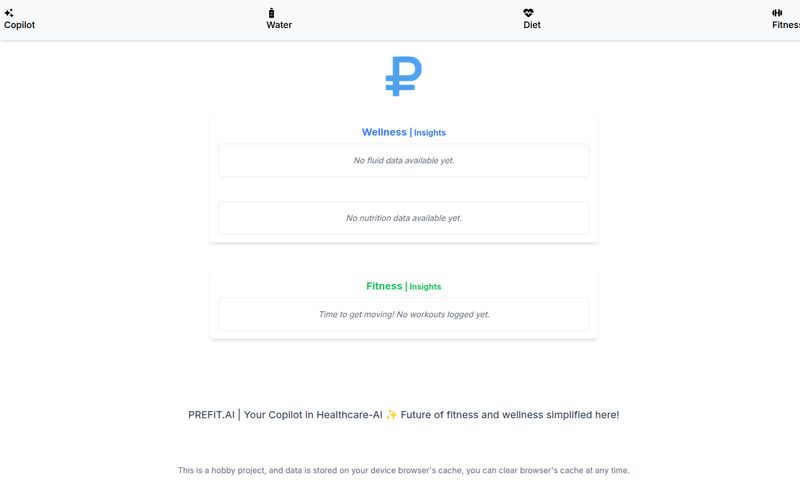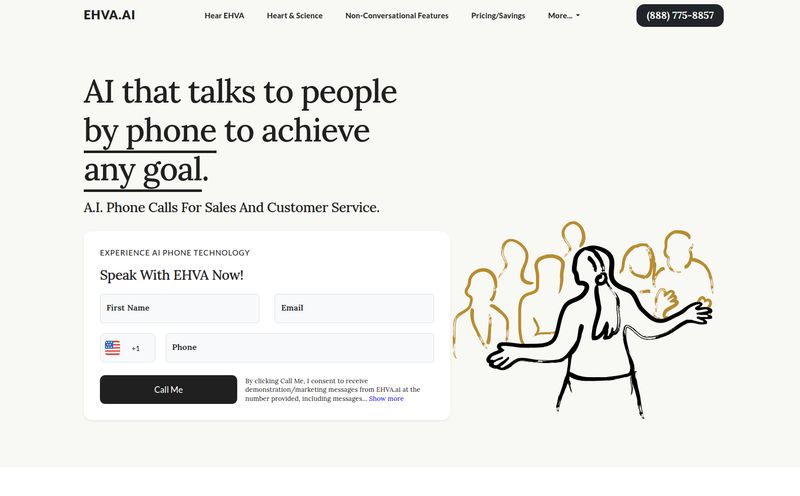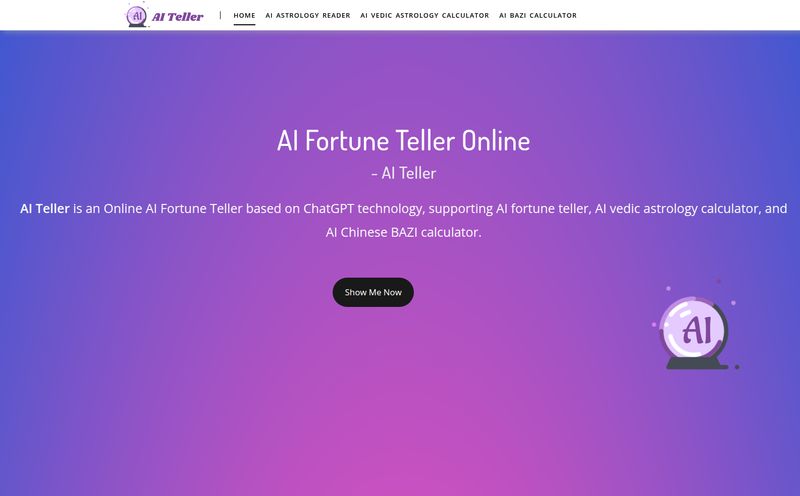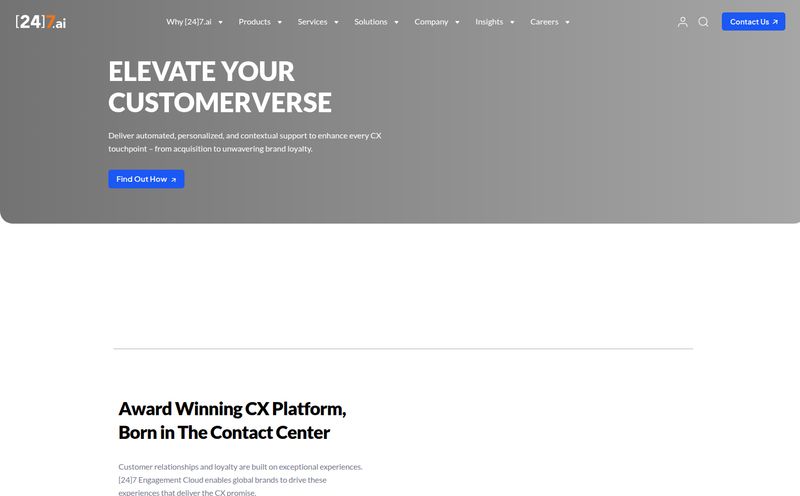It’s 2 AM. You wake up with a weird twitch in your eyelid that won’t stop, or maybe your kid has a cough that sounds… suspiciously like a seal. What’s the first thing you do? If you’re like me, you probably grab your phone and tumble down the terrifying rabbit hole of “Dr. Google,” where every minor symptom quickly escalates into a rare, life-altering condition.
It’s a cycle of anxiety we all know too well. But what if there was a middle ground? Something more structured than a frantic Google search, but less hassle than booking a doctor's appointment for something that might be nothing. This is the space that tools like Niah AI are trying to fill. I’ve been hearing more and more about these AI health companions, and Niah AI, which operates entirely through WhatsApp, really caught my eye. A health assistant in an app I already use a dozen times a day? The convenience factor is undeniable. But is it actually any good?
So, What Exactly is Niah AI?
Let's break it down. Niah AI isn't a person in a white coat typing furiously on the other end. It’s an AI, a bot if you will, that lives inside your WhatsApp contacts. You add its number, and just like that, you can start a conversation. The whole point is to give you immediate, AI-driven guidance on your health concerns. Think of it as a first line of defense.
Instead of downloading yet another app that will languish on my phone, the integration with WhatsApp is genius. It lowers the barrier to entry completely. The platform's stated goal is pretty straightforward: help you figure out if that weird cough is just a common cold or something that warrants a real visit to a professional, potentially saving you time and money on unecessary appointments.
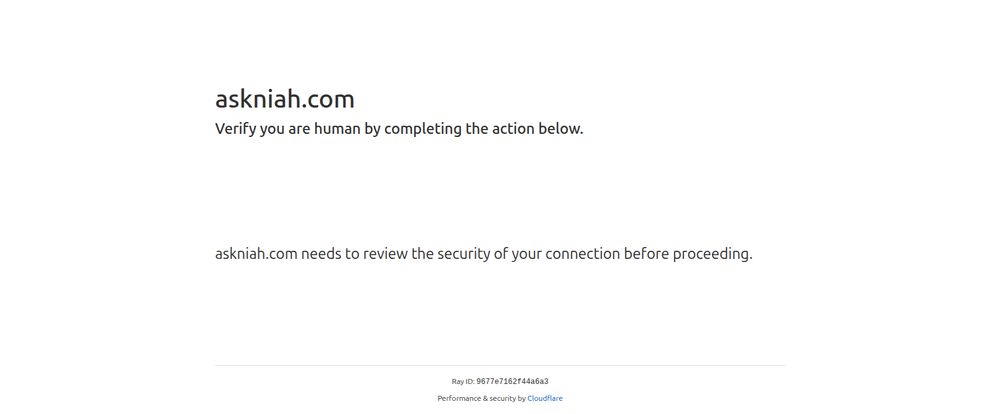
Visit Niah AI
My First Impressions and The Core Features
Getting started seems simple enough—just add a contact. From there, it’s all about the chat. Based on the information available, the experience is built around a few key functions that work together to create a sort of virtual triage system.
The 24/7 Symptom Checker
This is the main attraction. You tell Niah AI what’s wrong, and it’s programmed to ask you a series of follow-up questions to narrow down the possibilities. This interactive approach is, in my opinion, a huge step up from static web searches. It mimics the initial conversation you’d have with a nurse or doctor. It’s this guided process that promises to be more reliable than just typing “sore throat and headache” into a search bar and getting a million conflicting results.
Personalized Health Advice
After you’ve answered its questions, Niah AI provides personalized recommendations. Now, this is the part that gives me both excitement and pause. The recommendations could range from “get some rest and drink fluids” to “we suggest you speak with a medical professional.” It's designed to give you a sensible next step. The effectiveness here, of course, hinges entirely on the AI's programming and the quality of information you provide.
Data Confidentiality
Talking about health is personal. Incredibly personal. Niah AI states that it handles data confidentially, which is the absolute minimum requirement for any tool in this space. The idea of discussing symptoms with a bot might actually feel more private to some than talking to a person. Still, I always advise people to be mindful of the data they share with any online platform. It’s just smart practice.
The Good, The Bad, and The AI
No tool is perfect, especially not in a field as complex as healthcare. I’ve been in the SEO and tech world long enough to know that for every brilliant feature, there’s usually a trade-off. It’s all about balance.
The Upsides of Having an AI Health Buddy
The biggest win here is accessibility. Health worries don’t stick to a 9-to-5 schedule. Having a resource available 24/7, for free, is a massive advantage. For a new parent worried about a rash or a college student with a migraine, getting immediate, calm feedback can be incredibly reassuring.
Then there’s the potential to save money and time. Every doctor's visit that can be safely avoided is a win for your wallet and your schedule. If Niah AI can confidently suggest that your symptoms align with a common cold, it might save you a co-pay and a trip to the clinic.
Where We Need to Be Cautious
Okay, let’s be crystal clear about something. Niah AI is not a doctor. It is not a replacement for professional medical advice, diagnosis, or treatment. I can't stress this enough. Using a tool like this is like having a really advanced first-aid manual. It's great for bumps, scrapes, and minor questions, but you wouldn't use it to perform surgery. If you're experiencing severe symptoms like chest pain, difficulty breathing, or a sudden, excruciating headache—close the app and call emergency services. Seriously.
Another point is what the tech world calls the GIGO principle: Garbage In, Garbage Out. The AI is only as good as the information you feed it. If you describe your symptoms poorly or leave out important details, its recommendations could be off the mark. It can't see your rash or hear your cough; it relies completely on your description.
Here’s a quick comparison I drew up:
| Aspect | Niah AI | Dr. Google |
|---|---|---|
| Process | Guided, conversational questions | Open search, results overload |
| Outcome | A suggested next step | Anxiety and 10 possible diseases |
| Context | Personalized based on your answers | General, not specific to you |
What About the Cost? The Niah AI Pricing Mystery
This is where things get a bit hazy. The website and available info mention a “free symptom checker,” which is great. But there’s no public pricing page. My gut feeling, based on how these services usually operate, is that Niah AI runs on a freemium model. The basic checker is the hook to get you on the platform, and they might offer premium features for a fee down the line—perhaps more in-depth analysis, health tracking, or other management tools. For now, the core service appears to be free of charge, which is a major part of its appeal.
Who Is Niah AI Actually For?
So who should be adding Niah AI to their WhatsApp? I see a few ideal users:
- The Busy Parent: Wondering if that sniffle is just a sniffle or if you need to pull your kid from school.
- The College Student: Trying to figure out if a headache is from stress, dehydration, or something more.
- The Cautious User: Anyone who wants a quick, private gut-check before deciding whether to bother their doctor.
It’s for the ‘in-between’ moments of health. It is definitely not for individuals managing complex chronic illnesses or anyone facing a medical emergency. Please, use common sense.
Frequently Asked Questions about Niah AI
Is Niah AI safe to use?
For what it is—a tool for preliminary guidance on minor health concerns—yes, it appears safe. However, it should never be used as a substitute for professional medical advice. Think of it as an informational guide, not a diagnostic tool.
How does Niah AI protect my data?
The company states it maintains data confidentiality. As with any digital service, especially one involving health information, it's wise to read their privacy policy. Never share information you wouldn't feel comfortable being stored digitally.
Can Niah AI prescribe medication?
Absolutely not. Niah AI is an information bot. It is not a licensed medical professional and has no authority or ability to prescribe medication or treatments. That's a job strictly for real doctors.
Is Niah AI free?
The core symptom checking feature is offered for free. There might be premium features now or in the future, but the company has not made any pricing structure public.
What makes it different from just Googling my symptoms?
The main difference is the process. Niah AI uses a structured, conversational Q&A format to narrow down possibilities. This is designed to be more focused and less likely to send you into a panic than the free-for-all of a Google search.
My Final Thoughts on This Pocket Health Companion
"The greatest challenge for AI in healthcare isn't about replacing doctors, but about augmenting them and empowering patients in a responsible way."
Niah AI is a fascinating example of where consumer tech is heading. It’s a tool with genuine potential to be helpful. The convenience of a health assistant in WhatsApp is a brilliant move, and for answering those small, nagging health questions, I think it could be a fantastic resource.
But its usefulness is directly tied to the user's understanding of its limitations. This isn't your new family doctor. It's a smart, accessible, and potentially very helpful tool for navigating the minor bumps on the road of life. Used wisely, Niah AI could become a go-to for quick peace of mind. And in a world of information overload, a little bit of guided clarity is something we can all appreciate.
Reference and Sources
- The official Niah AI website: askniah.com
- For more on WhatsApp: WhatsApp.com
- An overview of AI in health from the World Health Organization: WHO Guidance on AI
- Tips on protecting your privacy online from the Electronic Frontier Foundation: EFF.org
